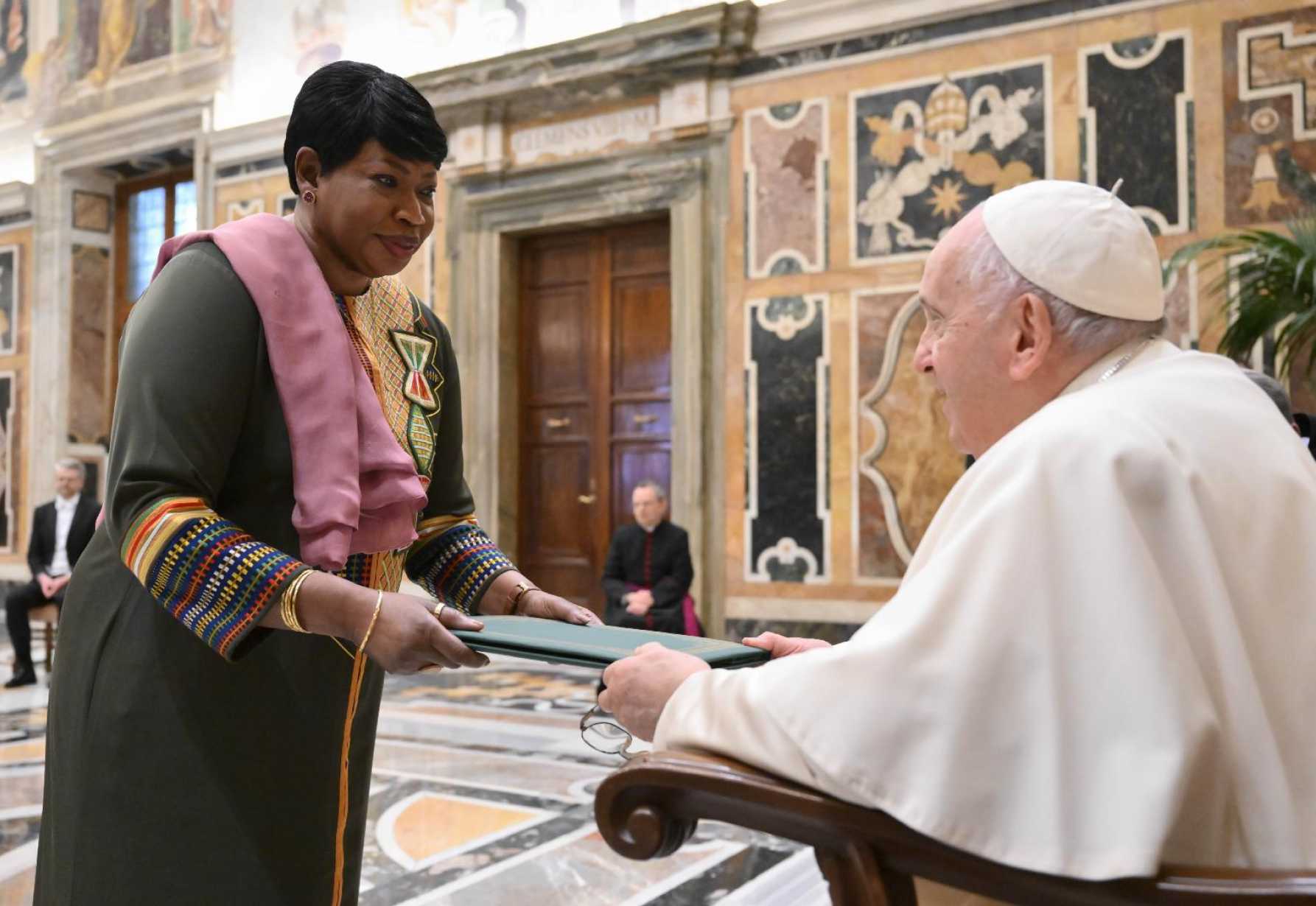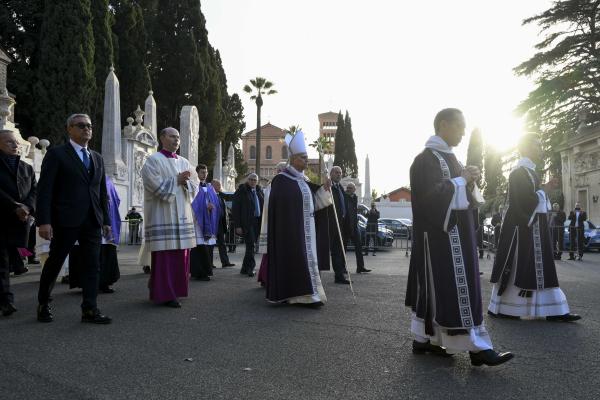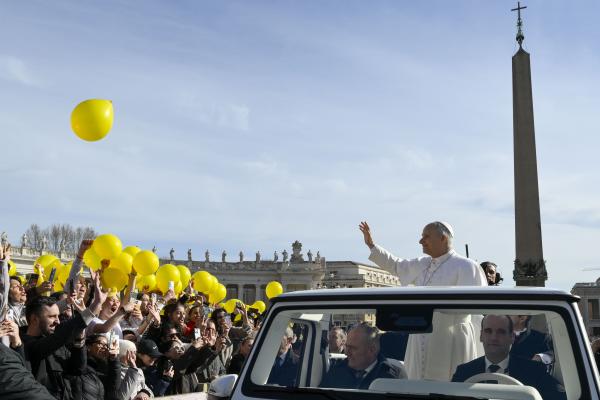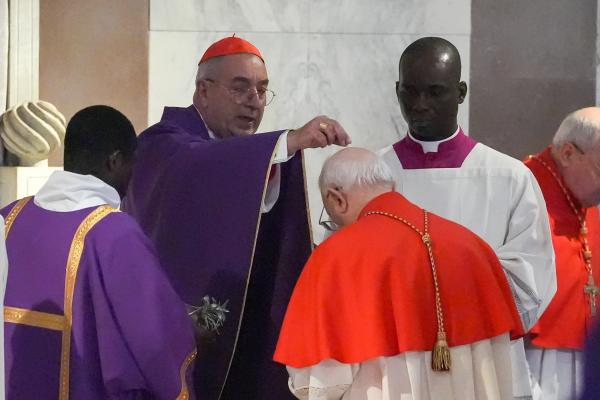Vatican neutrality is a force for peace, pope tells ambassadors
Pope Francis welcomed five new ambassadors to the Vatican, speaking to them about the importance of dialogue in peacemaking and explaining how Vatican neutrality allows it to work for the end of conflicts and the promotion of the common good.
 Cindy Wooden
Cindy Wooden

Fatou Bom Bensouda presents to Pope Francis her letters of credential as Gambia's ambassador to the Holy See during an audience in the Apostolic Palace at the Vatican May 13, 2023. (CNS photo/Vatican Media)
VATICAN CITY (CNS) -- In encouraging the peaceful resolution of conflicts and in promoting the common good on the international stage, the Vatican embraces a strategy of "positive neutrality," which allows it to dialogue with all sides, Pope Francis said.
"The Holy See, in conformity with its nature and particular mission, strives to protect the inviolable dignity of each person, promote the common good and foster human fraternity among all peoples," Pope Francis told new ambassadors to the Vatican from Iceland, Bangladesh, Syria, Gambia and Kazakhstan.
The pope had special words for "the beloved Syrian people who are still recovering from the recent violent earthquake in the midst of the ongoing suffering caused by armed conflict."
Welcoming the diplomats to their new posts May 13, just a few hours before he met with Ukrainian President Volodymyr Zelenskyy, the pope noted the Vatican has no "political, commercial or military aims."
The Vatican's position, he said, "far from being an 'ethical neutrality,' especially in the face of human suffering" gives it "a certain standing in the international community that allows it to better assist in the resolution of conflicts and other matters."
A glance at the situations people are living in across the globe "could leave us shocked and discouraged," the pope said, pointing to conflict and unrest in Sudan, Congo, Myanmar, Lebanon, Jerusalem and "of course, the ongoing war in Ukraine which has led to untold suffering and death."
Millions of other people suffer from forced migration and climate change, he said, and there is "a large number of our brothers and sisters around the world who are still living in poverty due to the lack of access to drinking water, food, basic health care, education and dignified work."
"When will we learn from history that the ways of violence, oppression and unbridled ambition to conquer land do not benefit the common good?" Pope Francis asked. "When will we learn that investing in the wellbeing of people is always better than spending resources on the development of deadly weapons?"
"When will we learn that we are one human family which can only truly thrive when all of its members are respected, cared for and able to make their own unique contributions?" he continued. "Until we come to this realization, we will continue to experience what I have been calling a third world war being fought piecemeal."
The role of an ambassador, he said, is to help people realize they are brothers and sisters and that they must find better ways to live and work together so that all will thrive.
As a bridge builder, he said, "an ambassador can serve as a figure of hope. Hope in the ultimate goodness of humanity. Hope that common ground is possible because we are all part of the human family. Hope that the last word in avoiding conflict or resolving one peacefully is never said. Hope that peace is not an unrealistic dream."



